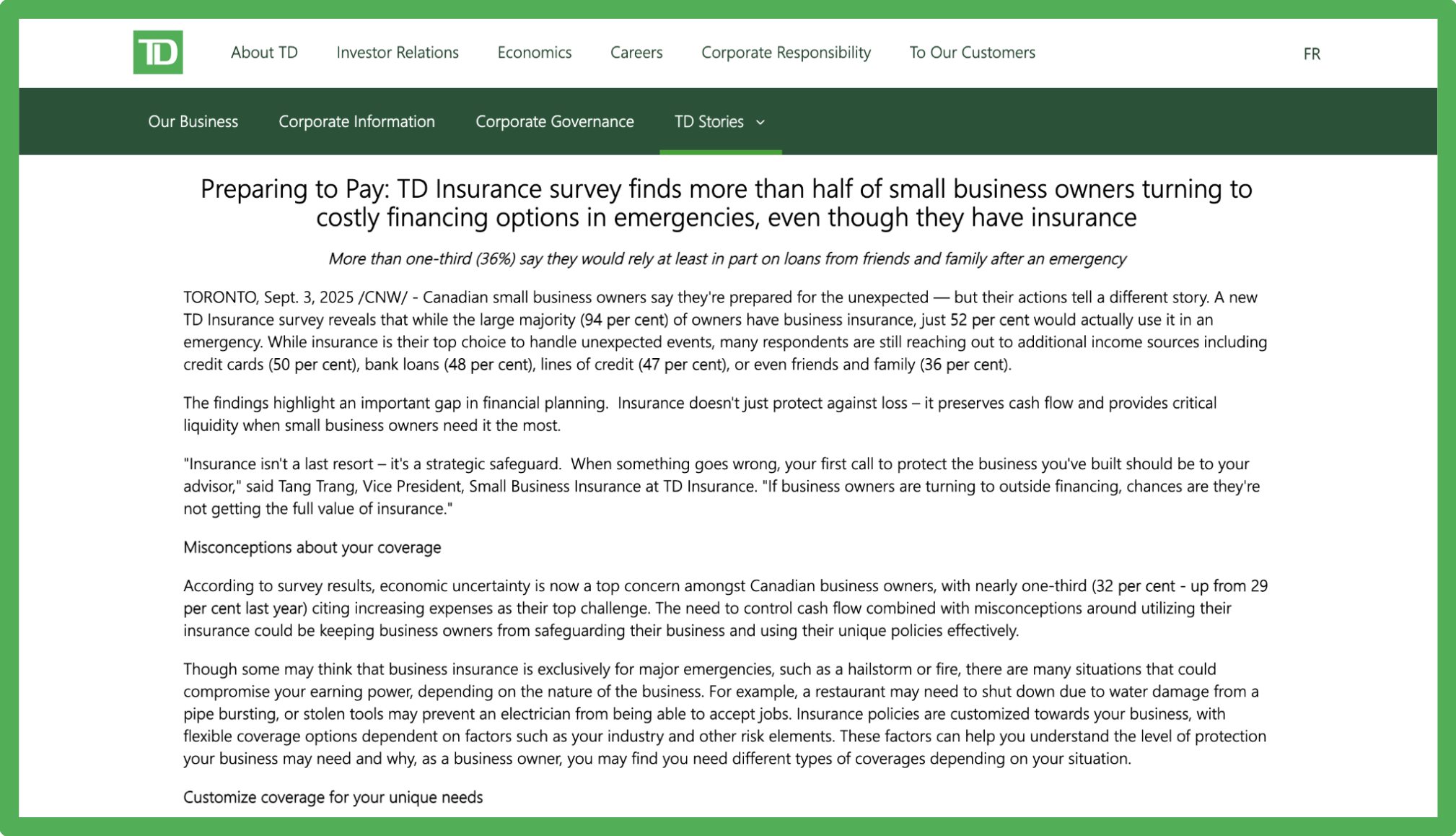
Original text here from Patrice Bernard (LinkedIn)
A survey commissioned by TD Insurance reveals a troubling trend: business owners often forget about the coverage they already have and end up turning to expensive financing solutions rather than contacting their insurance agent. It’s yet another example of the communication failures the sector is all too known for.
Admittedly, the survey’s design is a bit puzzling. It starts with the fact that the overwhelming majority (94%) of Canadian SMEs have insurance coverage. It then draws a comparison between roughly half of business leaders who would use their policy in an emergency (without specifying whether such emergencies would actually qualify) and the large share who say they’d rely instead on credit card debt, a loan, or even financial help from friends and family.
Subscribe to our newsletter:
The responses nonetheless highlight a real flaw in entrepreneurs’ thinking: they don’t instinctively see insurance as a first line of protection against adversity. Beyond the “classic” major perils like fire or hail, they often fail to connect their policies with everyday incidents specific to their trade—a burst pipe that shuts down a restaurant, or stolen tools that put an electrician out of work.
This disconnect is even more striking given that many respondents express concern about their financial outlook. TD’s recommendation is twofold: first, encourage entrepreneurs to contact their advisor immediately whenever they suffer a loss that might be covered; and second, urge them to review their insurance needs in detail, without assumptions, so they can secure truly personalized coverage that matches their business and context.
It’s a worthy goal—but shouldn’t insurers first look in the mirror? If clients aren’t aware of what their policies cover, or when they can rely on them, that points to a communication gap the industry itself has created. Customers shouldn’t have to chase their representative for answers. Ideally, they should be proactively informed at the right moment.
And the problem isn’t limited to businesses. Who really knows which everyday hassles are covered by their home insurance? Admittedly, solutions aren’t always obvious. But insurers could do far more to address this widespread disconnect. For example, proactively updating clients whenever coverage terms evolve would not only close the knowledge gap but also build trust in a sector that desperately needs it.